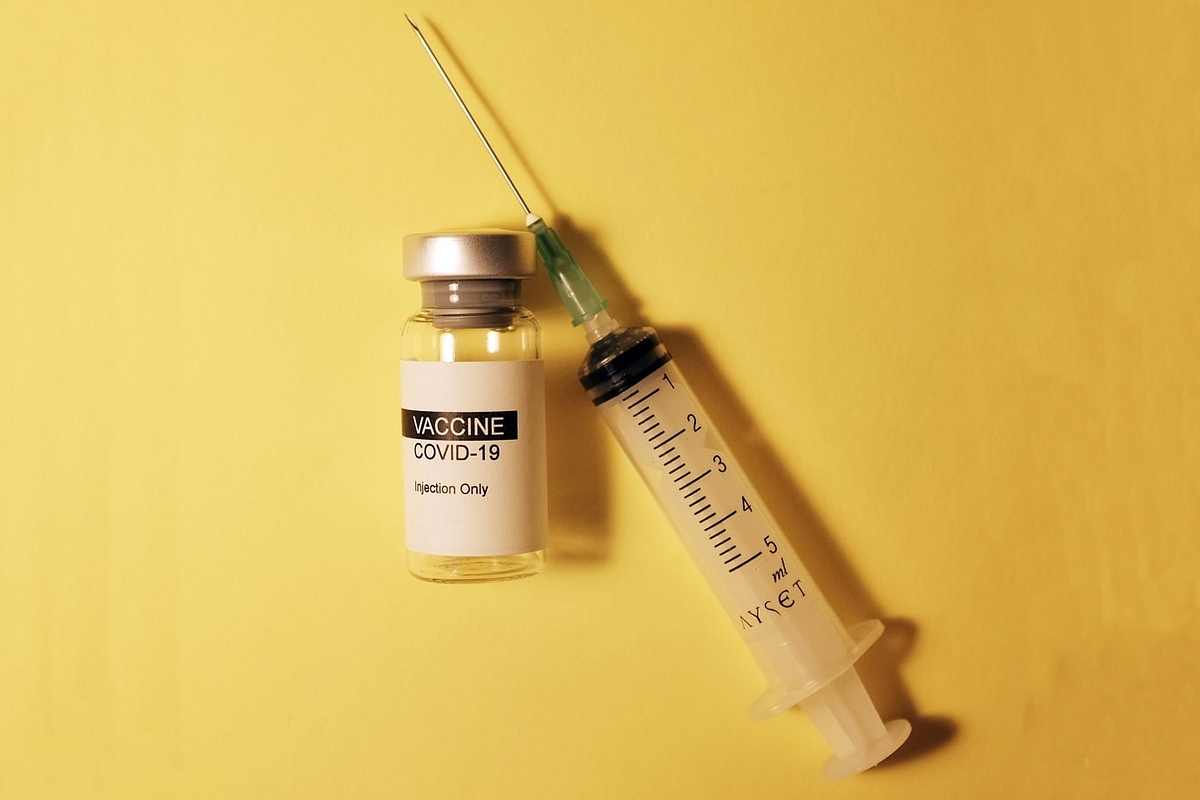News Brief
India's First mRNA COVID Vaccine Candidate Found To Be Safe, Gets DCGI Nod For Phase 2/3 Clinical Trials

Covid-19 Vaccine (Representative image)
India's first indigenous mRNA Covid-19 vaccine candidate, which is being developed by Pune-based Gennova Biopharmaceuticals Limited, has been found safe, tolerable, and immunogenic in the participants of the phase-1 study.
Gennova Biopharmaceuticals had submitted the interim clinical data of the Phase I study of the vaccine to the Central Drugs Standard Control Organisation (CDSCO), which is the Indian drug regulatory authority.
The CDSCO's vaccine subject expert committee (SEC) reviewed the interim Phase I data and found that the Covid-19 vaccine candidate, HGCO19, was safe, tolerable, and immunogenic in the participants of the study.
Further, the Drug Controller General of India (DCGI) has also approved the Gennova's proposal for Phase II and Phase III study of the vaccine, titled, "A Prospective, Multicentre, Randomized, Active-controlled, Observer-blind, Phase II study seamlessly followed by a Phase III study to evaluate the Safety, Tolerability, and Immunogenicity of the candidate HGCO19 (COVID-19 vaccine) in healthy subjects", according to a statement by the Health Ministry.
The study will be conducted in India at approximately 10-15 sites in Phase II and 22-27 sites in Phase III. Gennova plans to use the Indian Council of Medical Research's (ICMR) clinical trial network sites for this study.
As per the information shared over its official website, Gennova has developed the vaccine codenamed 'HGC019' in a collaboration with Seattle based HDT Biotech Corporation. It has already demonstrated safety, immunogenicity, neutralization antibody activity in the rodent and non-human primate models.
The company claims that its vaccine is unique as it makes use of the most prominent mutant of spike protein (D614G) as a vaccine candidate and is based on the self-amplifying mRNA platform, which gives the advantage of a low dosing regimen. It uses the adsorption chemistry so that the mRNA is attached on the surface of the nano-lipid carrier to enhance the release kinetics of the mRNA within the cells. Also, the vaccine is stable at two to eight degrees Celcius which could be a significant boost for India, enabling easier distribution and administration across the nation.
Unlike the traditional vaccine platforms which make use of dead or inactivated virus particles, mRNA vaccines impart molecular instructions to the body to induce the production of protein through a synthetic RNA of the virus. The protein's recognition by the body's immune system initiates the production of antibodies.
Support Swarajya's 50 Ground Reports Project & Sponsor A Story
Every general election Swarajya does a 50 ground reports project.
Aimed only at serious readers and those who appreciate the nuances of political undercurrents, the project provides a sense of India's electoral landscape. As you know, these reports are produced after considerable investment of travel, time and effort on the ground.
This time too we've kicked off the project in style and have covered over 30 constituencies already. If you're someone who appreciates such work and have enjoyed our coverage please consider sponsoring a ground report for just Rs 2999 to Rs 19,999 - it goes a long way in helping us produce more quality reportage.
You can also back this project by becoming a subscriber for as little as Rs 999 - so do click on this links and choose a plan that suits you and back us.
Click below to contribute.
Latest